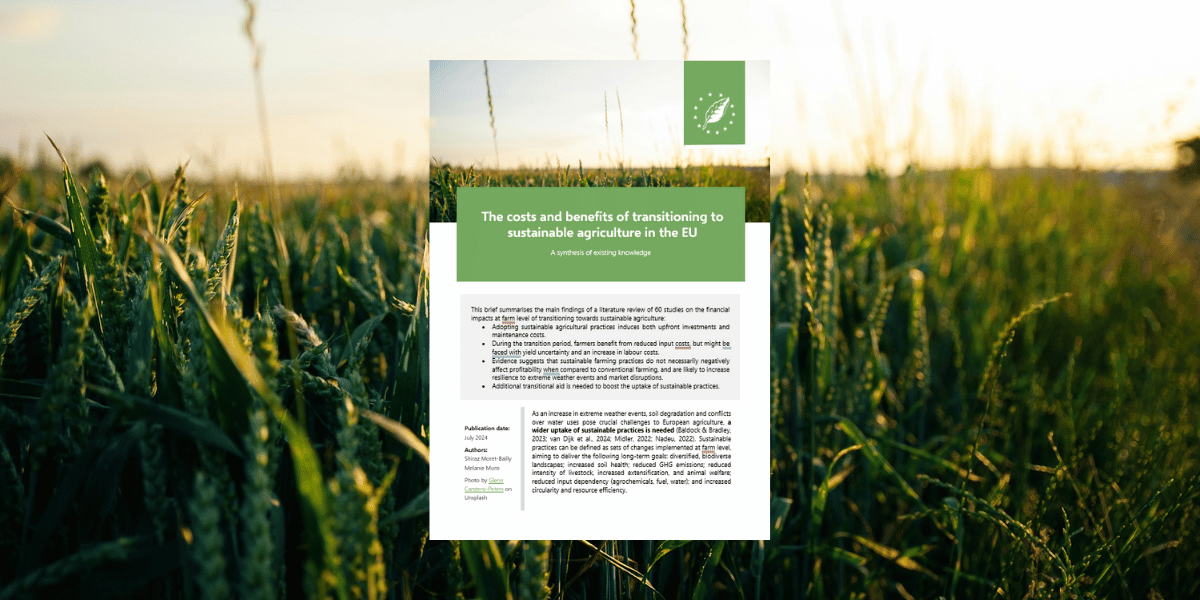AUTHORS: Shiraz Moret-Bailly, Melanie Muro
This policy brief summarises the main findings of a review of studies assessing the farm-level financial impacts of transitioning to sustainable agriculture. It outlines the upfront and maintenance costs induced by the adoption of various sustainable practices and explores how they affect the cost structure and profitability of transitioning farms.
As an increase in extreme weather events, soil degradation and conflicts over water uses pose crucial challenges to European agriculture, a wider uptake of sustainable practices is needed.
At farm level, there is substantial evidence that sustainable farming can be profitable and provide decent revenues to European farmers, and even fare better economically than conventional farms despite lower gross output due to much lower operational costs. However, the financial benefits of sustainable agriculture at farm level are usually accounted for after the transition to sustainable practices, that is after sustainable practices have been trialled and fully integrated into the farm’s system. The financial impacts during the transition itself are less known, especially within a European context.
This review of 60 studies indicates that adopting sustainable agricultural practices induces both upfront investments and maintenance costs. Reduced tillage, biodiversity-enhancing features, and water-saving infrastructure require the highest amount of upfront investments, while other practices, such as cover cropping, induce moderate maintenance costs.
During the transition period, farmers benefit from reduced input costs, but are faced with yield uncertainty and increased labour costs. Evidence suggests that sustainable farming practices do not necessarily negatively affect profitability when compared to conventional farming and are likely to increase resilience to extreme weather events and market disruptions.
Despite common trends, transition pathways vary widely across farms, depending on farm type, size, and initial economic profitability or biophysical conditions.
To boost the uptake of sustainable practices among farmers and reduce the risks involved in these changes, additional and better-targeted transitional aid is needed.
A list of the reviewed literature and case studies examined in this brief is available here.
Photo by Glenn Carstens-Peters on Unsplash

